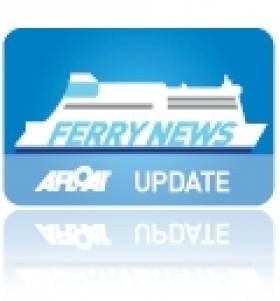Displaying items by tag: Chernobyl Ireland
Celtic Link Ferries Support Chernobyl Ireland
#FerryChernobyl - Celtic Link Ferries are delighted to support Chernobyl Ireland Humanitarian Aid as the charity continue to help the children of Grozovo School in Minsk, Belarus.
The ferry operator would like to take the opportunity to wish Chernobyl Ireland continued success in their tireless mission to provide food and water, comfortable living conditions, and other supplies to children who really need it.
If you would like to become a volunteer or host a child through Chernobyl Aid Ireland, contact: 051-858944 or for further information visit: www.chernobylaidireland.ie/
Celtic Link Ferries operate three round-trip sailings weekly between Rosslare and Cherbourg which is run by the ro-pax vessel Celtic Horizon.




























































